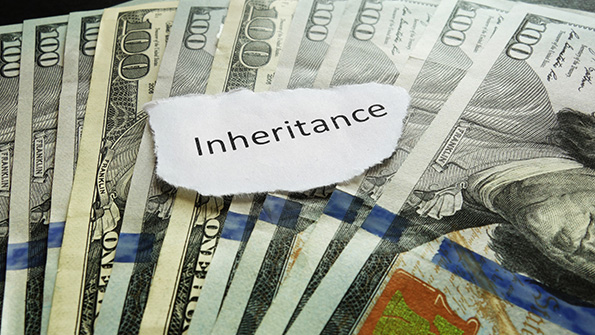
Wealth management has been a bright spot for investment banks and large institutions over the last few years. But operational challenges are starting to crop up; in fact, the cost to income ratio of these businesses have increased from about 80 percent in 2012 to 84.4 percent in 2014, according to a new report from Scorpio Partnership. “The good news is that client volumes and demand for wealth services are strengthening for many,” Sebastian Dovey, managing partner of Scorpio, told Forbes.com. “But the bad news is the industry is still tackling major compression factors in terms of costs versus income. Some are not moving quickly enough with rates of growth slowing.”

While the number of people inheriting wealth has been on the decline over the last decade, inherited wealth will make a comeback, predicts Wealth-X in a new report on the next decade of wealth released Wednesday. The report estimates about $4.1 trillion will be transferred globally by ultra-high-net-worth individuals to the next generation over the next 10 years, including $1.2 trillion in liquid assets. But, particularly with the rise of wealth in emerging regions like South Africa, India and the Middle East, wealth transfers will differ slightly than the in the past, with women, religion and cultural values playing a bigger role in shaping wealthy individuals' approach to inheritance. India is expected to have 437,000 millionaires by 2018, with that population doubling by 2023. Africa's UHNW population is expected to quadruple to more than 10,500 by 2040.
Playing the Cybersecurity Trend

A new ETF hopes to capitalize on the high-profile cyber breaches and the companies that have cropped up to address such breaches. First Trust listed its new Nasdaq CEA Cybersecurity ETF (CIBR) on the Nasdaq exchange Tuesday. The ETF, based off of the Nasdaq CEA Cybersecurity Index, will track the performance of companies that build, implement and manage security protocols applied to private and public networks, computers, and mobile devices.

A new report from workplace financial wellness firm Financial Finesse looks at who struggles with high or overwhelming financial stress, and income discrepancy is only part of the story. According to the study, middle-aged women (30 to 55) with minor children and income below $60,000 top the report, with 55 percent battling high stress. Meanwhile, only 6-7 percent of men under age 30 or over age 55, with no minor children and income above $100,000, exhibit overwhelming stress. “While it’s no surprise to any working mother that juggling competing financial needs is stressful,” observed Liz Davidson, Financial Finesse CEO, “small steps over time can create financial balance for families at any income level.” Davidson suggests building an emergency fund over time, tracking expenses and taking full advantage of employer benefits.

